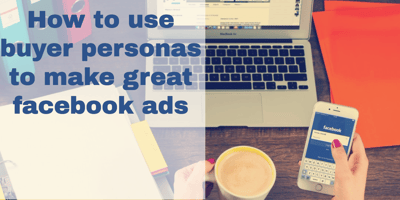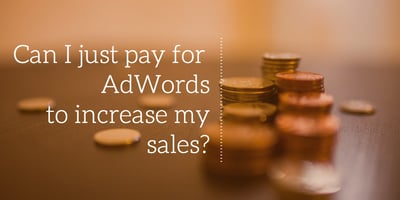
As a business owner, many organizations will approach you about advertising with their company. They'll be well-polished, and put together, but there's some questions that need to be answered to make sure that paid advertising will make sense for your company. Whether it's print ads, billboards, adwords or social media ads, a little bit of planning will help you make sure you're getting your money's worth.
1. What's the goal of the ad?
It's fundamental, but worth asking. Before you write down any copy or begin designing, what's the business objective you're trying to accomplish? Usually it's something to do with revenue, but how does this ad in this location contribute to that goal?
2. Who's your target audience?
If you sell something that appeals to a broad group of people, then targeting large groups of people can be useful. But whenever possible, think of ways to target more specific audiences that are more likely to be your customer. If you sell kitchen appliances, think about focusing on people buying homes, since they have to buy appliances.
3. How are you tailoring your message to your audience?
With online advertising, it's very easy to adjust what you're offering based on who's looking. If you sell shoes and sweaters, you can target different ads to people who are fans of Zappos versus fans of J. Crew. Even in traditional media, there are ways to do this, it just takes a little more effort.
4. How does your ideal customer hear about you?
For most people, this is word of mouth. Look for ways to promote customer testimonials or to promote people talking about you on Facebook. Consumers are loathe to listen to advertisers about why they should buy something, but letting customers talk about you can be very effective.
5. How are you tracking your advertising?
Even print ads are able to tracked with coupon codes, or by asking customers where they heard about you. Even if they're inexact, they can give you a good idea of what's effective and what isn't.
6. What are you doing for those who might be interested, but aren't ready to buy yet?
This one is frequently overlooked. How do you capture those who might be interested in the near future, but aren't now? Creating a mailing list or posting frequent social media updates are some of the ways you can do this.
7. What's your measure of success?
Deciding beforehand what you consider a success can help you to have clear goals for your spending. Aiming for a certain number of customers may be more beneficial than a sales goal, as the hard part is getting people to spend money with you in the first place. Customers can be encouraged to come back, accounts can be grown, but getting them to part with their money the first time is what the ad is trying to accomplish.
Advertising can be a useful tool if done right. Too often, small businesses get into advertising contracts because they think it's a good deal, their competitors are doing it, or any other number of reasons. There's no point in getting into bridge-jumping contests with your competitors until you know whether certain ads will help your business goals or not.
*Bonus Question*
Have you taken advantage of all of the free marketing opportunities you can first?
Many companies jump into advertising because it's something they think will help their business. However, using free methods is a great way to do this as well. Consider looking into blogging, social media, and email marketing before you spend too much on actual advertising. Additionally, be careful about advertising online if you don't have a solid web presence that's up to date and doesn't appear abandoned.














